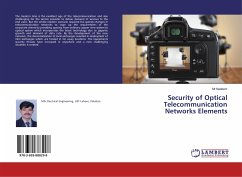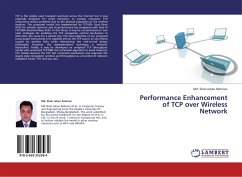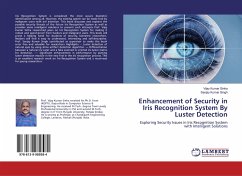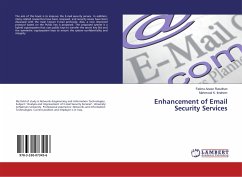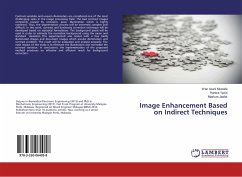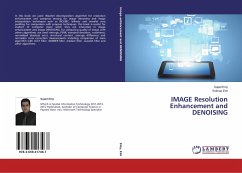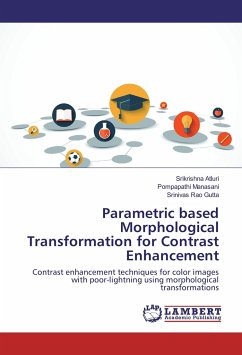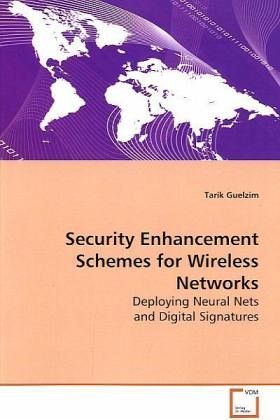
Security Enhancement Schemes for Wireless Networks
Deploying Neural Nets and Digital Signatures
Versandkostenfrei!
Versandfertig in 6-10 Tagen
45,99 €
inkl. MwSt.

PAYBACK Punkte
23 °P sammeln!
The IEEE 802.11 standard is becoming the most popularand efficient network topology deployed today.Providing and ensuring the security of wirelessnetwork is essential part to its continuous growth.Goals such as confidentiality and trust imply thatevery data transmitted by each user stays known onlyto the communicating parties. Authorization of usersis also a very important aspect of network integrity.There exist mechanisms defined by the Wi-Fi ProtectedAccess (WPA) protocol that enable such functionality;however, recent attacks on such system showed thatthese mechanisms can be defied. In this ...
The IEEE 802.11 standard is becoming the most popular
and efficient network topology deployed today.
Providing and ensuring the security of wireless
network is essential part to its continuous growth.
Goals such as confidentiality and trust imply that
every data transmitted by each user stays known only
to the communicating parties. Authorization of users
is also a very important aspect of network integrity.
There exist mechanisms defined by the Wi-Fi Protected
Access (WPA) protocol that enable such functionality;
however, recent attacks on such system showed that
these mechanisms can be defied. In this Book, we
propose two new security schemes. The first employs a
neural network decision engine that restricts network
access to mobile nodes whose physical location is
within a threshold distance from the wireless access
point or the controller of the network. The second
tackles the disassociation packet security flaw by
which a malicious attacker can disconnect all network
users by injecting two or more false management
frames into the network. Our scheme proposes the use
of digital signatures as a mean to ensure the
authenticity, integrity and validity of these frames.
and efficient network topology deployed today.
Providing and ensuring the security of wireless
network is essential part to its continuous growth.
Goals such as confidentiality and trust imply that
every data transmitted by each user stays known only
to the communicating parties. Authorization of users
is also a very important aspect of network integrity.
There exist mechanisms defined by the Wi-Fi Protected
Access (WPA) protocol that enable such functionality;
however, recent attacks on such system showed that
these mechanisms can be defied. In this Book, we
propose two new security schemes. The first employs a
neural network decision engine that restricts network
access to mobile nodes whose physical location is
within a threshold distance from the wireless access
point or the controller of the network. The second
tackles the disassociation packet security flaw by
which a malicious attacker can disconnect all network
users by injecting two or more false management
frames into the network. Our scheme proposes the use
of digital signatures as a mean to ensure the
authenticity, integrity and validity of these frames.



